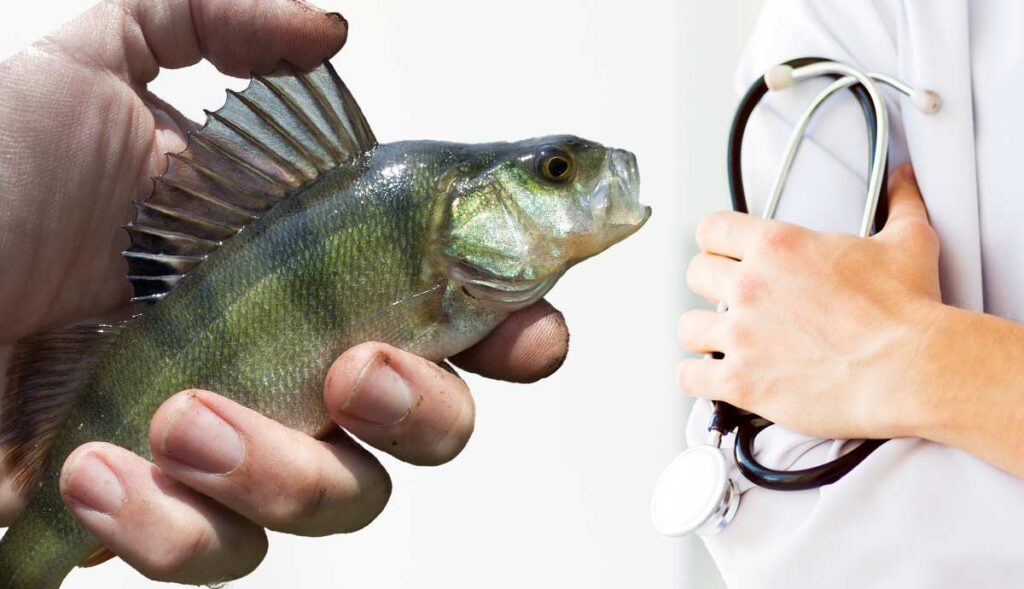Worried about your fishy friend? It’s common to feel helpless when our aquatic companions aren’t acting themselves. But don’t despair! Just like dogs and cats, fish can get sick, and thankfully, there are experts who can help. This article will guide you through the world of fish health care, explaining common illnesses, how to recognize signs of sickness, and the importance of seeking professional help from an aquatic veterinarian.
This comprehensive guide will cover everything you need to know about caring for your sick fish. We’ll delve into various fish illnesses, explore telltale signs of distress, introduce you to the specialized field of aquatic veterinary medicine, and discuss treatment options available to get your finned friend back on track.
Fish Illnesses
Fish are susceptible to a wide range of diseases, just like any other living creature. These illnesses can be caused by bacteria, viruses, parasites, fungi, or even environmental factors. Some common fish ailments include:
- Fin rot: A bacterial infection that causes the fins to become ragged and discolored.
- Ich (white spot disease): A highly contagious parasitic infection characterized by white spots on the fish’s body.
- Swim bladder disease: A condition affecting the fish’s ability to control buoyancy, often leading to difficulty swimming or floating upside down.
- Columnaris disease: A bacterial infection that can affect the skin and gills, causing ulcers and lesions.
These are just a few examples, and many other illnesses can affect fish depending on their species, environment, and overall health.
Signs of a Sick Fish
Recognizing the signs of illness in your fish is crucial for early intervention and improving their chances of recovery. Here are some common indicators that your fishy friend might be unwell:
- Changes in behavior: Lethargy, hiding more than usual, loss of appetite, rapid or erratic swimming patterns.
- Physical abnormalities: Frayed or clamped fins, lesions on the skin or gills, cloudy eyes, protruding scales, bloating.
- Water quality issues: Cloudy or discolored water, foul odor, excessive algae growth, low oxygen levels.
If you notice any of these signs, it’s important to act promptly and consult with an aquatic veterinarian.
Aquatic Veterinarians
Just like humans have doctors, fish have specialized veterinarians trained in the unique needs of aquatic animals. These experts are equipped to diagnose and treat a wide range of fish illnesses, from minor infections to complex diseases.
Aquatic veterinarians possess extensive knowledge about fish anatomy, physiology, and common health problems. They can perform physical examinations, run diagnostic tests, prescribe medications, and provide personalized care plans for your finned friend.
Fish Health Care
Maintaining good water quality is fundamental to preventing illness in fish. Regular water changes, proper filtration, and monitoring of water parameters like temperature, pH, and ammonia levels are essential for creating a healthy environment.
In addition to water quality, providing a balanced diet, appropriate tank size, and minimizing stress factors can contribute significantly to your fish’s overall well-being.
Treatment Options
Treatment options for sick fish vary depending on the diagnosis. Aquatic veterinarians may prescribe medications such as antibiotics, antifungals, or antiparasitics. They may also recommend dietary changes, water quality adjustments, or other supportive care measures.
It’s crucial to follow your veterinarian’s instructions carefully and complete the full course of treatment even if your fish appears to be recovering.
Conclusion
Remember, can you take a fish to the vet? Absolutely! Just like any other pet, fish deserve access to quality veterinary care. By understanding common fish illnesses, recognizing signs of distress, and seeking professional help from an aquatic veterinarian, you can ensure your finned friend lives a long, healthy, and happy life. Don’t hesitate to reach out for expert guidance when needed – your fish will thank you for it!



